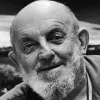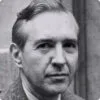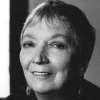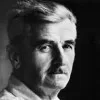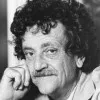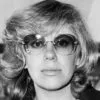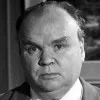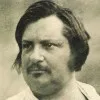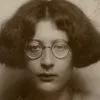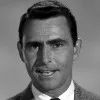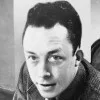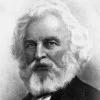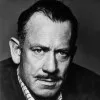All artists are willing to suffer for their work. But why are so few prepared to learn to draw?
Banksy (b. 1974) England-based pseudonymous street artist, political activist, film director
Wall and Piece, Introduction (2005)
(Source)
Quotations about:
artist
Note not all quotations have been tagged, so Search may find additional quotes on this topic.
My notion about any artist is that we honor him best by reading him, by playing his music, by seeing his plays or by looking at his pictures. We don’t need to fall all over ourselves with adjectives and epithets. Let’s play him more.
Jacques Barzun (1907-2012) French-American historian, educator, polymath
Interview (1986-12-04) by John C. Tibbetts, “Jacques Barzun on Robert Schumann”
(Source)
The greatest artists have never been men of taste. By never sophisticating their instincts they have never lost the awareness of the great simplicities, which they relish both from appetite and from the challenge these offer to skill in competition with popular art.
Jacques Barzun (1907-2012) French-American historian, educator, polymath
Essay (1956), “Whirligig: Last Words on Berlioz,” The Energies of Art: Studies of Authors Classic and Modern,
(Source)
Update of an earlier, uncited essay.
The concentration of a small child at play is analogous to the concentration of the artist of any discipline. In real play, which is real concentration, the child is not only outside time, he is outside himself. He has thrown himself completely into whatever it is that he is doing. A child playing a game, building a sand castle, painting a picture, is completely in what he is doing. His self-consciousness is gone; his consciousness is wholly focused outside himself.
The gift of imagination is by no means an exclusive property of the artist; it is a gift we all share; to some degree or other all of us, all of you, are endowed with the powers of fantasy.
Leonard Bernstein (1918-1990) American conductor, composer, author, music lecturer, pianist
Commencement Speech, Johns Hopkins University (1980-05-30)
(Source)
Collected in Findings: Fifty Years of Meditations on Music, Part 4 (1982).
It is erroneous to tie down individual genius to ideal models. Each person should do that, not which is best in itself, even supposing this could be known, but that which he can do best, which he will find out if left to himself. Spenser could not have written Paradise Lost, nor Milton the Faerie Queene. Those who aim at faultless regularity will only produce mediocrity, and no one ever approaches perfection except by stealth, and unknown to themselves.
William Hazlitt (1778-1830) English writer
“Thoughts on Taste,” Edinburgh Magazine (1819-07)
(Source)
The most regretful people on earth are those who felt the call to creative work, who felt their own creative power restive and uprising, and gave to it neither power nor time.
The aim of every artist is to arrest motion, which is life, by artificial means and hold it fixed so that a hundred years later, when a stranger looks at it, it moves again since it is life. Since man is mortal, the only immortality possible for him is to leave something behind him that is immortal since it will always move. This is the artist’s way of scribbling “Kilroy was here” on the wall of the final and irrevocable oblivion through which he must someday pass.
William Faulkner (1897-1962) American novelist
“The Art of Fiction,” Interview by Jean Stein, Paris Review #12 (Spring 1956)
(Source)
If you want to really hurt your parents, and you don’t have the nerve to be gay, the least you can do is go into the arts. I’m not kidding. The arts are not a way of making a living. They are a very human way of making life more bearable.
Kurt Vonnegut, Jr. (1922-2007) American novelist, journalist
Man Without a Country, ch. 3 “Here Is a Lesson in Creative Writing” (2005)
(Source)
Perhaps the meaning of all human activity lies in the artistic consciousness, in the pointless and selfless creative act? Perhaps our capacity to create is evidence that we ourselves were created in the image and likeness of God?
Andrei Tarkovsky (1932-1986) Russian film director, screenwriter, film theorist [Андрей Арсеньевич Тарковский]
Sculpting in Time (1986) [tr. Hunter-Blair]
(Source)
Art is born and takes hold wherever there is a timeless and insatiable longing for the spiritual, for the ideal: that longing which draws people to art. Modern art has taken the wrong turn in abandoning the search for the meaning of existence in order to affirm the value of the individual for his own sake.
Andrei Tarkovsky (1932-1986) Russian film director, screenwriter, film theorist [Андрей Арсеньевич Тарковский]
Sculpting in Time (1986) [tr. Hunter-Blair]
(Source)
When a poet is being a poet — that is, when he is writing or thinking about writing — he cannot be concerned with anything but the making of a poem. If the poem is to turn out well, the poet cannot have thought of whether it will be saleable, or of what its effect on the world should be; he cannot think of whether it will bring him honor, or advance a cause, or comfort someone in sorrow. All such considerations, whether silly or generous, would be merely intrusive; for, psychologically speaking, the end of writing is the poem itself.
The relation between the artist and reality is an oblique one, and indeed there is no good art which is not consciously oblique. If you respect the reality of the world, you know that you can approach that reality only by indirect means.
Richard Wilbur (1921-2017) American poet, literary translator
“The Bottles Become New, Too” (1953), Responses: Prose Pieces, 1953-1976 (1976)
(Source)
Originally published in Quarterly Review of Literature, Vol. 7, No. 3 (1953).
The reason I can’t take myself seriously as a “creative artist,” Guy dear, is because I’m not one. It’s not somehow not in me to bear very patiently with my own mediocrity. If I can’t — and I can’t — be Shakespeare or Goethe, I’d rather raise good cabbages. And that is why I would not write at all, except that there is more money in writing than in cabbages, not only more money, but more freedom. […] This is why I’m not “filled with my art.” I ain’t got no art. I’ve got only a kind of craftsman’s skill, and make stories as I make biscuits or embroider underwear or wrap up packages.
Rose Wilder Lane (1886-1968) American journalist, travel writer, novelist, political theorist
Letter to Guy Moyston (25 Jun 1925)
(Source)
Quoted in William Holtz, The Ghost in the Little House: A Life of Rose Wilder Lane, ch. 9, sec. 5 (1995).
An author, like any other so-called artist, is a man in whom the normal vanity of all men is so vastly exaggerated that he finds it a sheer impossibility to hold it in. His overpowering impulse is to gyrate before his fellow men, flapping his wings and emitting defiant yells. This being forbidden by the police of all civilized countries, he takes it out by putting his yells on paper. Such is the thing called self-expression.
H. L. Mencken (1880-1956) American writer and journalist [Henry Lewis Mencken]
“The Fringes of Lovely Letters,” Prejudices: Fifth Series (1926)
(Source)
Every work of art is one half of a secret handshake, a challenge that seeks the password, a heliograph flashed from a tower window, an act of hopeless optimism in the service of bottomless longing. Every great novel or comic book convenes the first meeting of a fan club whose membership stands forever at one but which maintains chapters in every city — in every cranium — in the world. Art, like fandom, asserts the possibility of fellowship in a world built entirely from the materials of solitude.
The essence of all art is to have pleasure in giving pleasure.
Mikhail Baryshnikov (b. 1948) Latvian-American dancer, choreographer, actor
“Baryshnikov: Gotta Dance,” Time (19 May 1975)
(Source)
Most artists, ashamed of their need for encouragement, try to carry their work to term like a secret pregnancy. … We bunker in with our projects, beleaguered by our loneliness and the terrible secret that we carry: We need friends to our art. We need them as desperately as friends to our hearts. Our projects, after all, are our brainchildren, and what they crave is a loving extended family, a place where “How’d it go today?” can refer to a turn at the keys or the easel as easily as a turn in the teller’s cage.”
Julia Cameron (b. 1948) American teacher, author, filmmaker, journalist
“Taking Heart,” The Sound of Paper (2005)
(Source)
The wretched Artist himself is alternatively the lowest worm that ever crawled when no fire is in him: or the loftiest God that ever sang when the fire is going.
Caitlin Thomas (1913-1994) British author, wife of Dylan Thomas [née Macnamara]
Not Quite Posthumous Letter to My Daughter (1963)
(Source)
Beauty, like truth and goodness, is a quality that may in one sense be predicated of all great art, but the deliberate attempt to beautify can, in itself, only weaken the creative energy. Beauty in art is like happiness in morals: it may accompany the act, but it cannot be the goal of the act, just as one cannot “pursue happiness,” but only something else that may give happiness.
Northrop Frye (1912-1991) Canadian literary critic and literary theorist
Anatomy of Criticism, “Mythical Phase: Symbol as Archetype” (1957)
(Source)
It is the artists who make the true value of the world, though at times they may have to starve to do it. They are like earthworms, turning up the soil so things can grow, eating dirt so that the rest of us may eat green shoots.
The writer’s only responsibility is to his art. He will be completely ruthless if he is a good one. He has a dream. It anguishes him so much he must get rid of it. He has no peace until then. Everything goes by the board: honor, pride, decency, security, happiness, all, to get the book written. If a writer has to rob his mother, he will not hesitate; the “Ode on a Grecian Urn” is worth any number of old ladies.
William Faulkner (1897-1962) American novelist
“The Art of Fiction,” Interview by Jean Stein, Paris Review #12 (Spring 1956)
(Source)
An artist is a creature driven by demons. He doesn’t know why they chose him and he’s usually too busy to wonder why. He is completely amoral in that he will rob, borrow, beg, or steal from anybody and everybody to get the work done.
William Faulkner (1897-1962) American novelist
“The Art of Fiction,” Interview by Jean Stein, Paris Review #12 (Spring 1956)
(Source)
In relation to his public, the artist of to-day […] walks at first with his companions, till one day he falls through a hole in the brambles, and from that moment is following the dark rapids of an underground river which may sometimes flow so near the surface that the laughing picnic parties are heard above, only to re-immerse itself in the solitude of the limestone and carry him along its winding tunnel, until it gushes out through the misty creeper-hung cave which he has always believed to exist, and sets him back in the sun.
Cyril Connolly (1903-1974) English intellectual, literary critic and writer.
“Writers and Society, 1940-3” (1943), The Condemned Playground (1946)
(Source)
If the artist does not throw himself into his work as Curtius sprang into the gulf, as a soldier leads a forlorn hope without a moment’s thought, and if when he is in the crater he does not dig as a miner does when the earth has fallen in on him; if he contemplates the difficulties before him instead of conquering them one by one, like the lovers in fairy tales, who to win their princesses overcome ever-new enchantments, the work remains incomplete; it perishes in the studio where creativeness becomes impossible, and the artist looks on the suicide of his own talent.
[Si l’artiste ne se précipite pas dans son oeuvre, comme Curtius dans le gouffre, comme le soldat dans la redoute, sans réfléchir; et si, sans ce cratère, il ne travaille pas comme le mineur enfoui sous un éboulement: s’il contemple enfin les difficultés au lieu de las vaincre une à une, à l’example de ces amoureux des féeries, qui pour obtenir leurs princesses, combattaient des enchantements renaissants, l’oeuvre reste inachevée, elle périt au fond de l’atelier où la production devient impossible, et l’artiste assiste au suicide de son talent.]
Honoré de Balzac (1799-1850) French novelist, playwright
Cousin Betty [La Cousine Bette] (1846) [tr. Waring (1899)]
(Source)
Curtius is the young Roman patrician, Marcus Curtius. In 362 BC, a chasm opened up in Rome's forum, and soothsayers proclaimed it could only be filled by Rome's greatest treasure. Curtius mounted his horse and leapt into the chasm, which then closed over him.
Alt. trans.:
- "If the artist does not throw himself into his work, like Curtius into the gulf beneath the Forum, like a soldier against a fortress, without hesitation, and if, in that crater, he does not work like a miner under a fall of rock, if, in short, he envisages the difficulties instead of conquering them one-by-one, following the examples of lovers in fairy-tales who, to win their princesses, struggle against recurring enchantments, the work remains unfinished, it expires in the studio, wher production remains impossible and the artist looks on at the suicide of his own talent." [tr. Raphael (1992)]
- "If the artist does not fling himself, without reflecting, into his work, as Curtius flung himself into the yawning gulf, as the soldier flings himself into the enemy's trenches, and if, once in this crater, he does not work like a miner on whom the walls of his gallery have fallen in; if he contemplates difficulties instead of overcoming them one by one ... he is simply looking on at the suicide of his own talent." [Source]
- Original French.
A work of art has an author and yet, when it is perfect, it has something which is essentially anonymous about it.
Simone Weil (1909-1943) French philosopher
Gravity and Grace [La Pesanteur et la Grâce], “Beauty” (1947) [ed. Thibon] [tr. Crawford/von der Ruhr (1952)]
(Source)
In art, there are only two types of people: revolutionaries and plagiarists. And in the end, doesn’t the revolutionary’s work become official, once the State takes it over?
Paul Gauguin (1848-1903) French painter [Eugène Henri Paul Gauguin]
Letter in Le Soir (25 Apr 1895)
Collected in Daniel Guérin, ed., The Writings of a Savage (1996) [tr. Levieux].
Often given as "Art is either plagiarism or revolution," or sometimes "Art is either a revolutionist or a plagiarist." This is often cited from James Huneker, The Pathos of Distance (1913), but there it is given as a paraphrase: "Paul Gauguin has said that in art one is either a plagiarist or a revolutionary."
(Huneker's book elsewhere contains the parallel paraphrase, "Paul Gauguin has said that all artists are either revolutionists or reactionists.")
TANNER: The true artist will let his wife starve, his children go barefoot, his mother drudge for his living at seventy, sooner than work at anything but his art.
George Bernard Shaw (1856-1950) British playwright and critic
Man and Superman, Act 1 (1903)
(Source)
An intellectual is a man who says a simple thing in a difficult way; an artist is a man who says a difficult thing in a simple way.
The art object is always passive in relation to its audience. It is alarmingly active, however, in relation to its creator. Far from being like a receptacle in which you, the artist, drop your ideas, and far from being like a lump of clay which you pummel until it fits your notion of an ashtray, the art object is more like an enthusiastic and ill-trained Labrador retriever which yanks you into traffic.
Annie Dillard (b. 1945) American author
Living by Fiction (1983)
(Source)
Often paraphrased, "Art is like an ill-trained Labrador retriever that drags you out into traffic."
I think the author who speaks about his own books is almost as bad as a mother who talks about her own children.
Benjamin Disraeli (1804-1881) English politician and author
Speech, Banquet to Lord Rector, University of Glasgow (19 Nov 1870)
(Source)
The greatest works of art speak to us without knowing of us.
Alain de Botton (b. 1969) Swiss-British author
The Consolations of Philosophy, ch. 5 “Consolation for a Broken Heart” (2000)
(Source)
I suppose we think euphemistically that all writers write because they have something to say that is truthful and honest and pointed and important. And I suppose I subscribe to that, too. But God knows when I look back over thirty years of professional writing, I’m hard-pressed to come up with anything that’s important. Some things are literate, some things are interesting, some things are classy, but very damn little is important.
Rod Serling (1924-1975) American screenwriter, playwright, television producer, narrator
“Rod Serling: The Facts of Life,” interview by Linda Brevelle (4 Mar 1975)
(Source)
If you have a good idea, get it out there. For every idea I’ve realized, I have ten I sat on for a decade till someone else did it first. Write it. Shoot it. Publish it. Crochet it, sauté it, whatever. MAKE.
Joss Whedon (b. 1964) American screenwriter, author, producer [Joseph Hill Whedon]
“Dollhouse’s Joss Whedon Answers Your Questions,” Hulu Blog (9 Mar 2009)
(Source)
When I was introduced to art school, everybody was 20, 22, and 25 years old. Many of them had graduated from college. So there I was, and I was about half their height. And I looked at these guys and I thought, “I can’t compete with these birds!” So at the end of the first week I went home. I was so disillusioned. I was a failure at 15. So my uncle, who lived with us occasionally, came up and he said, “You look awful. You look like something the dog had under the front porch. What’s the matter?” “I can’t compete with these guys at school. They draw like Leonardo da Vinci. I’ll never catch up with them.” I felt like it was the end of the world for me. I could draw a little bit. But I couldn’t keep up with the big guys. So I suddenly blurted out and I said, “You can’t make a racehorse out of a pig!” And my uncle looked at me very gently, and he patted me on the knee, and he said, “No. But you can make a very fast pig.” And I realized that’s what it was really all about. I could only be as good as I could be, whatever my limits were. And I learned a second thing: creative work is never competitive.
Chuck Jones (1912-2002) American animator, screenwriter, producer, and director
Interview with Tom Sito, Archive of American Television (17 Jun 1998)
(Source)
JOYCE: An artist is the magician put among men to gratify — capriciously — their urge for immortality. The temples are built and brought down around him, continuously and contiguously, from Troy to the fields of Flanders. If there is any meaning in any of it, it is in what survives as art, yes even in the celebration of tyrants, yes even in the celebration of nonentities. What now of the Trojan War if it had been passed over by the artist’s touch? Dust. A forgotten expedition prompted by Greek merchants looking for new markets. A minor redistribution of broken pots. But it is we who stand enriched, by a tale of heroes, of a golden apple, a wooden horse, a face that launched a thousand ships —– and above all, of Ulysses, the wanderer, the most human, the most complete of all heroes — husband, father, son, lover, farmer, soldier, pacifist, politician, inventor and adventurer.
The pain passes, but the beauty remains.
Pierre-Auguste Renoir (1841-1919) French Impressionist artist
(Attributed, 1919)
(Source)
Quoted in Sisley Huddleston, Paris Salons, Cafés, Studios (1928). When asked by a young Henri Matisse why he still painted when suffering from painful, twisting arthritis in his hands.
The truth is, as every one knows, that the great artists of the world are never Puritans, and seldom even ordinarily respectable. No virtuous man — that is, virtuous in the Y.M.C.A. sense — has ever painted a picture worth looking at, or written a symphony worth hearing, or a book worth reading.
Art is a jealous mistress, and, if a man have a genius for painting, poetry, music, architecture, or philosophy, he makes a bad husband and an ill provider.
Ralph Waldo Emerson (1803-1882) American essayist, lecturer, poet
Essay (1860), “Wealth,” The Conduct of Life, ch. 3
(Source)
Based on a course of lectures, "The Conduct of Life," delivered in Pittsburg (1851-03).
And now go, and make interesting mistakes, make amazing mistakes, make glorious and fantastic mistakes. Break rules. Leave the world more interesting for your being here. Make good art.
Neil Gaiman (b. 1960) British author, screenwriter, fabulist
Speech (2012-05-17), Commencement, University of the Arts, Philadelphia [19:28]
(Source)
The work is an absolute necessity for me. I can’t put it off, I don’t care for anything but the work; that is to say, the pleasure in something else ceases at once and I become melancholy when I can’t go on with my work. Then I feel like a weaver who sees that his threads are tangled, and the pattern he had on the loom is gone to hell, and all his thought and exertion is lost.
Vincent van Gogh (1853-1890) Dutch painter
Letter to Theo Van Gogh (3 Jun 1883)
(Source)
Quoted in A. Lubin, Stranger on the Earth : A Psychological Biography of Vincent Van Gogh (1996). Alternate transalations:For me, the work is an absolute necessity. I cannot put it off; I don't care for anything else; that is to say, the pleasure in something else ceases at once, and I become melancholy when I cannot go on with my work. I feel then as the weaver does when he sees that his threads have got tangled, the pattern he had on the loom has gone to the deuce, and his exertion and deliberation are lost.
[In I. & J. Stone, ed., Dear Theo: the Autobiography of Vincent Van Gogh (1995)]
For me work is an absolute necessity, indeed I can’t really drag it out, I take no more pleasure in anything than in work, that’s to say, pleasure in other things stops immediately and I become melancholy if I can’t get on with the work. Then I feel like a weaver when he sees his threads getting tangled and the pattern that he had on the loom going to the devil and his thought and effort coming to nothing.
[tr. VanGoghLetters.org]
Every artist was first an amateur.
Ralph Waldo Emerson (1803-1882) American essayist, lecturer, poet
“Progress of Culture,” Letters and Social Aims (1876)Full text.


